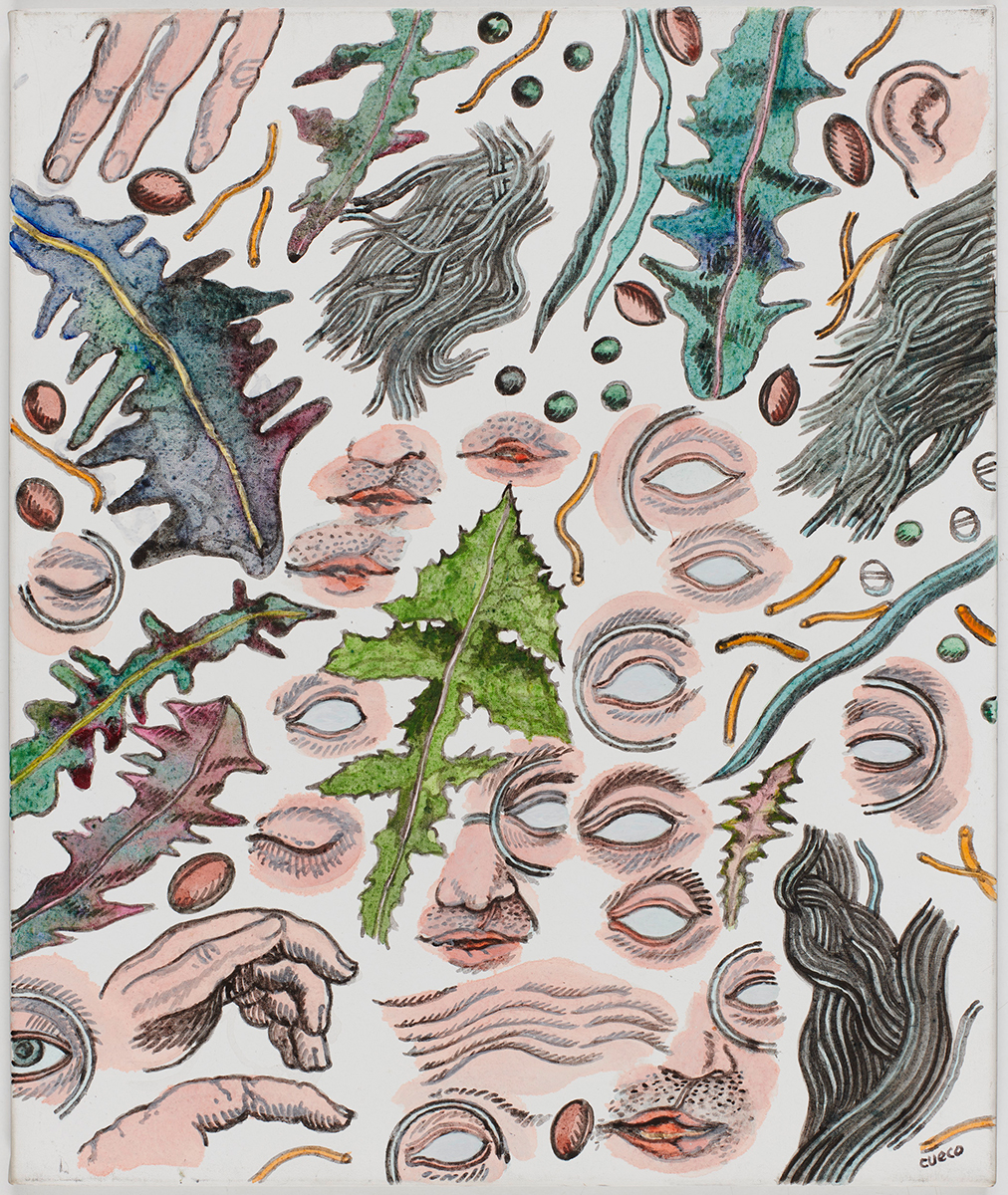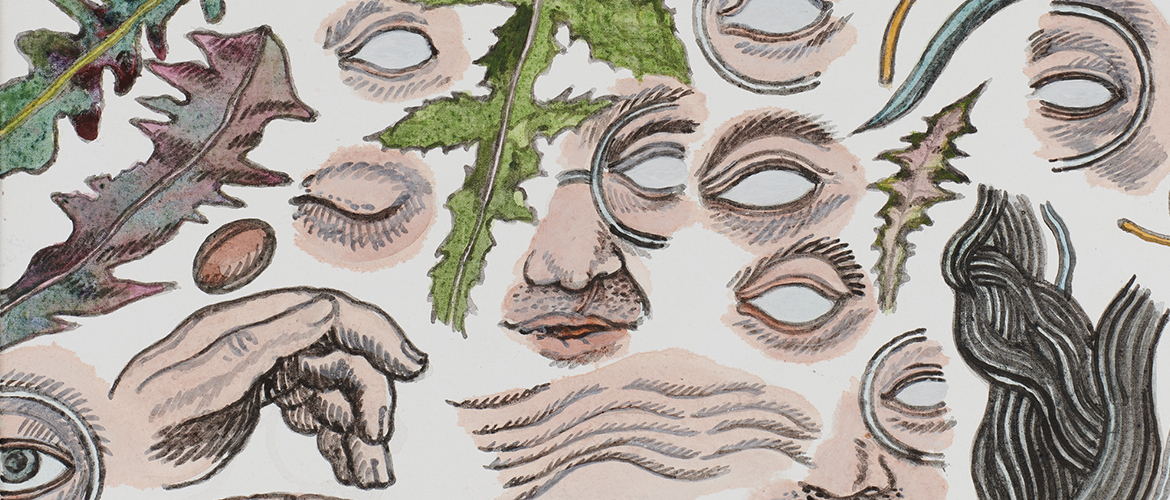Henri CUECO (Uzerche, 1929 - Paris, 2017)
Self-portrait with dandelion leaves, n°2, 2002, acrylic on canvas, 46 x 55 cm, MU 12684
Encouraged by his father, an unsuccessful Spanish immigrant painter, to paint from the age of 5, Henri Cueco was a self-taught artist who, following in the footsteps of Paul Rebeyrolle, became passionate about figuration in the 1950s, at a time when abstraction was the preferred medium. In the early 1960s he became a leading figure in the New Figuration. His artistic practice was in the 1960s and 1970s the reflection of his political commitment, which led him to participate in the Atelier Populaire and to found in 1969 the Coopérative des Malassis. This great humanist was also a painter, writer, orator, narrator, draftsman, illustrator, engraver and theater designer. He taught at Beaux-Arts de Paris from 1984 to 1994, with the ambition of being "a mirror that speaks, not a gentleman who comes to say: 'I am stronger than you'... Some students teach me things. "
This Self-Portrait with Dandelion Leaves is one of the four acrylics that have entered the collection and constitute a series devoted to the representation of the human being. By cutting out his face and associating it, as in a herbarium, with plant elements, leaves, seeds and stems, the painter humorously reveals the utopian character of the self-portrait as a scientific and exact representation. He also diverts the symbolic use of the dandelion, an eminently popular plant. He does not represent the flower, which has been associated with the idea of spreading knowledge since the 19th century with the famous Larousse publishing house's Sower, but the leaf, known for its prosaically diuretic medicinal virtues. To the reference to the knowledge standardized by the edition, Cueco preferred to associate its face, seat of the spirit, to the complexity of the anatomical functioning, by evoking metaphorically one of its most trivial aspects but also essentially purifying.

Autoportrait aux feuilles de pissenlit, n°2, 2002, acrylique sur toile, 46 x 55 cm, MU 12684



